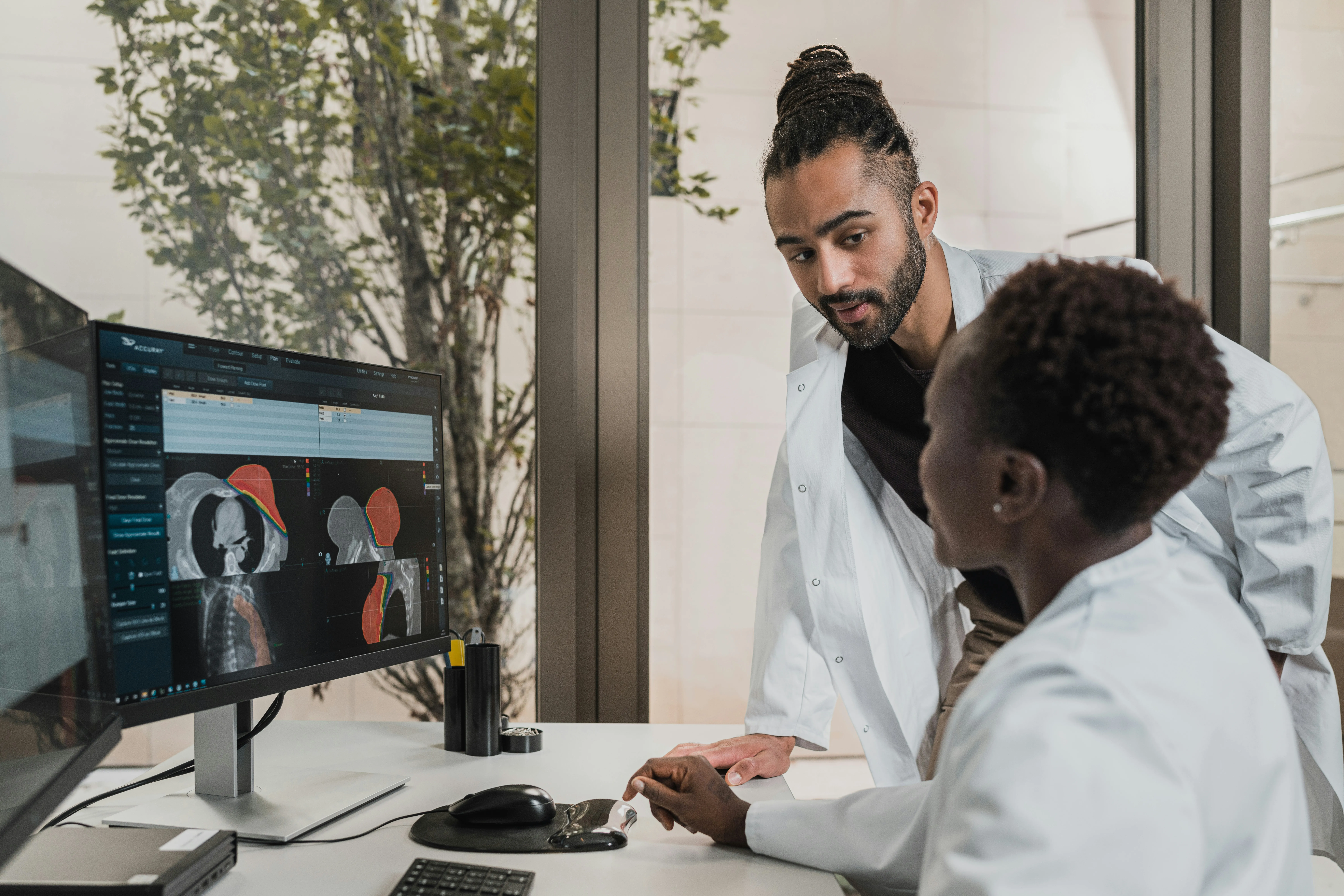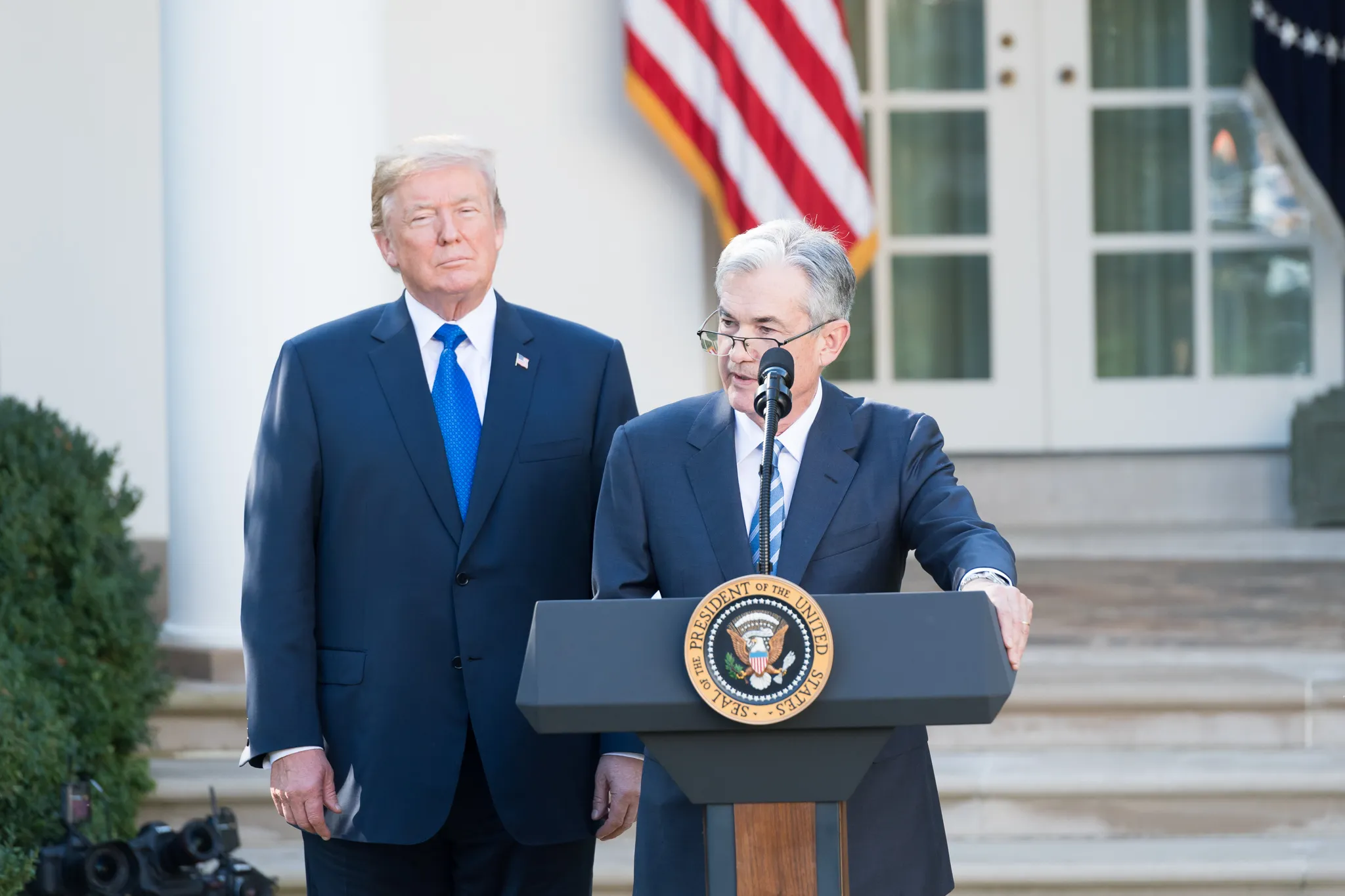Kazakhstan is turning seized crypto and mining profits into a national reserve as part of its digital finance strategy. Photo: Unsplash / Uladzislau Petrushkevich
AI beats doctors as Europol busts fraud ring
Also: Circle applies for U.S. trust license, Germany greenlights retail crypto, and Kazakhstan turns seized coins into reserves

Key stories:
– Germany’s biggest bank group to offer crypto in-app
– Europol cracks massive $539M crypto fraud ring
– Circle applies for U.S. trust bank license
– Microsoft’s AI diagnoses better than doctors
– Crypto markets start July in neutral gear
– Strategy inches closer to S&P 500 inclusion
– Trump’s sharpie strikes again on Fed rates
– Bill targets tax breaks for crypto miners
– Kazakhstan builds crypto reserve from seizures
– Trump-linked miner raises $220M for BTC push
The Crypto Radio LIVE has just launched across platforms, bringing you the hottest topics of the day wherever you are. Tune in weekdays at 1pm GST – Dubai time – for daily news in a brand new format. Below is a breakdown of everything we covered today, from Germany to Kazakhstan and AI to mining. Make sure you tune in again tomorrow on YouTube and X to catch the news as it happens.
Germany’s biggest bank group to offer crypto in-app

Crypto trading will soon be integrated into everyday banking apps for millions of Germans under Sparkassen’s new plan. Photo: Sparkassen-Finanzgruppe
In a move that could reshape retail crypto access in Europe, Germany’s largest banking group is preparing to enter the market. The Sparkassen-Finanzgruppe, which serves more than 50 million customers through a network of local banks, has announced plans to launch cryptocurrency trading services by mid-2026. The initiative will be powered by DekaBank, a licensed crypto custodian and part of the group.
Customers will be able to buy and store Bitcoin and Ethereum directly from their everyday banking apps. The platform will operate on a self-service basis, without personalized investment advice. However, built-in risk disclosures and educational content will aim to help customers navigate crypto safely. Sparkassen previously rejected a similar proposal in 2021, but the European Union’s new MiCA regulation appears to have shifted the calculus by providing a consistent regulatory framework.
With hundreds of regional banks under its umbrella, Sparkassen’s rollout could quickly bring digital assets to mainstream German households – and put pressure on other traditional banks across Europe to follow suit.
Europol cracks massive $539M crypto fraud ring
A sweeping international investigation has led to the arrest of five individuals tied to one of Europe’s largest crypto fraud networks. Europol coordinated the operation across several EU member states and the U.S., culminating in arrests in Madrid and the Canary Islands.
The scheme relied on fake investment platforms that lured victims – more than 5,000 in total – into transferring money for promised crypto returns. Once deposited, funds were channeled through crypto wallets, shell companies in Hong Kong, and false identities to obscure their origin. Authorities say over €460 million (roughly $539 million) was laundered.
This takedown comes amid growing concern that AI-enhanced scams are making online fraud harder to detect. Europol noted that investment fraud is now one of the most pressing financial security threats in Europe, and more arrests linked to the operation could follow.
Circle applies for U.S. trust bank license
Circle, the issuer of USDC – the world’s second-largest stablecoin – has submitted an application to become a federally chartered U.S. trust bank. If approved, the firm would fall under direct supervision of the Federal Reserve, FDIC, and the Office of the Comptroller of the Currency.
This shift toward full regulation could transform how stablecoins operate in the U.S. financial system. Circle would set a new standard for reserve transparency and regulatory compliance – putting pressure on competitors, especially offshore or decentralized stablecoins, to match its standards or risk marginalization.
The move also signals growing institutional acceptance of digital dollars. For regulators and policymakers wary of “shadow stablecoins” operating outside traditional controls, Circle’s application could be a model for how to bring crypto into the mainstream without losing oversight.
Microsoft’s AI diagnoses better than doctors

Microsoft’s AI, MAI-DxO, is beating doctors at diagnosis, reshaping how we think about healthcare and data. Photo: Unsplash / Accuray
A newly published study has found that Microsoft’s artificial intelligence model Diagnostic Orchestrator (MAI-DxO) outperformed human doctors in diagnosing difficult medical cases. The system, built on OpenAI’s GPT-4 and refined for clinical use, was faster, more accurate, and more consistent in identifying rare or confusing symptoms.
While AI won’t replace human doctors anytime soon, the findings point to a future where machines assist in high-stakes decision-making – especially in under-resourced or high-volume healthcare settings. For the crypto space, this also highlights an emerging challenge: how to secure sensitive medical data in a world increasingly reliant on digital intelligence.
Blockchain, with its emphasis on decentralization, transparency, and verifiable access control, could be the natural infrastructure for safeguarding AI-driven health records. As AI expands its reach, blockchain may become a critical layer in the next-gen healthcare stack.
Crypto markets start July in neutral gear
The crypto market opened July on stable footing but without much momentum. The total market cap stands at $3.41 trillion, with daily trading volume around $90 billion – lower than average for recent weeks. Bitcoin has dipped slightly to $106,800, while Ethereum remains near $2,460.
Altcoins show a mixed picture: SOL and XRP are holding up well, SEI and DOGE are under pressure, and Bitcoin Cash (BCH) has emerged as the day’s top gainer – up more than 5% to $525. The Fear & Greed Index sits at 50, indicating a balanced mood.
Traders appear to be in wait-and-see mode as Bitcoin consolidates just below key resistance around $108K. If it breaks higher, altcoins could follow with renewed energy. For now, the market seems content to hold its breath.
Strategy inches closer to S&P 500 inclusion
MicroStrategy, recently rebranded as “Strategy,” could soon become the first Bitcoin-focused company to join the S&P 500. A new accounting rule allowing unrealized Bitcoin gains to count toward earnings means the company could qualify – if Bitcoin stays above $95,240 through quarter-end.
Strategy currently holds more than 592,000 BTC, the largest corporate stash globally. While the firm posted net losses in the last three quarters, the price of Bitcoin could flip that narrative. Analysts say inclusion in the S&P 500 would mark a turning point, bringing institutional validation to crypto-treasury strategies.
The move could also attract new waves of ETF and index fund capital, deepening the ties between traditional equity markets and Bitcoin.
Trump’s sharpie strikes again on Fed rates

Tensions rise as President Trump targets Powell with a handwritten note blaming him for costly interest rate decisions. Photo: White House
President Donald Trump criticized Federal Reserve Chair Jerome Powell in a handwritten note made public during a White House press event. The former president accused Powell of keeping U.S. interest rates too high, blaming him for costing the country “hundreds of billions” of dollars.
He contrasted the U.S. rate of 4.25–4.5% with much lower figures from countries like Denmark and Switzerland, suggesting the U.S. should follow suit. Powell, however, defended the Fed’s independence and said no rate cuts are imminent as inflation and trade policies continue to be evaluated. The next policy meeting is scheduled for late July.
Though unconventional, Trump’s note underscores how monetary policy has become a front-and-center political issue – especially with elections on the horizon.
Bill targets tax breaks for crypto miners
U.S. Senator Cynthia Lummis is pushing for major tax reform in the crypto space. Her latest amendment targets double taxation on miners – currently taxed once when they earn crypto and again when they sell it. The proposal would exempt miners from the first charge, a move seen as pro-growth for U.S.-based operations.
The bill also includes measures to clarify staking rules and provide tax relief for small crypto payments, making everyday crypto use more practical. While the White House supports the initiative, the bill faces hurdles in Congress and could see significant edits before passage.
If successful, the changes could boost the competitiveness of U.S. miners and attract more crypto infrastructure investment stateside.
Kazakhstan builds crypto reserve from seizures

Kazakhstan has announced the formation of its first national crypto reserve, using seized digital assets and profits from state-operated mining farms. The project will be overseen by the National Bank of Kazakhstan and is part of a broader push to integrate digital assets into the country’s financial framework.
The plan includes “CryptoCity,” a pilot zone where crypto can be used in daily transactions. Officials say the initiative represents a shift from mining for foreign customers to actively managing crypto as a sovereign asset class.
It’s a significant statement from a country once known mainly for cheap electricity and industrial-scale mining: Kazakhstan now wants a stake in the financial future those assets represent.
Trump-linked miner raises $220M for BTC push
American Bitcoin, a mining company co-founded by Donald Trump Jr. and Eric Trump, has raised $220 million in a private offering. The firm, owned by Hut 8, received $10 million of that amount in actual Bitcoin and plans to use the funds to expand its mining fleet and treasury holdings.
A merger with Gryphon Digital Mining will take the company public on Nasdaq, where Eric Trump is expected to serve on the board. The company currently holds 215 BTC and is scaling aggressively – both financially and politically.
As regulation, energy policy, and political capital become more intertwined with mining, American Bitcoin’s rise could mark the start of a new chapter in the U.S. crypto landscape.




